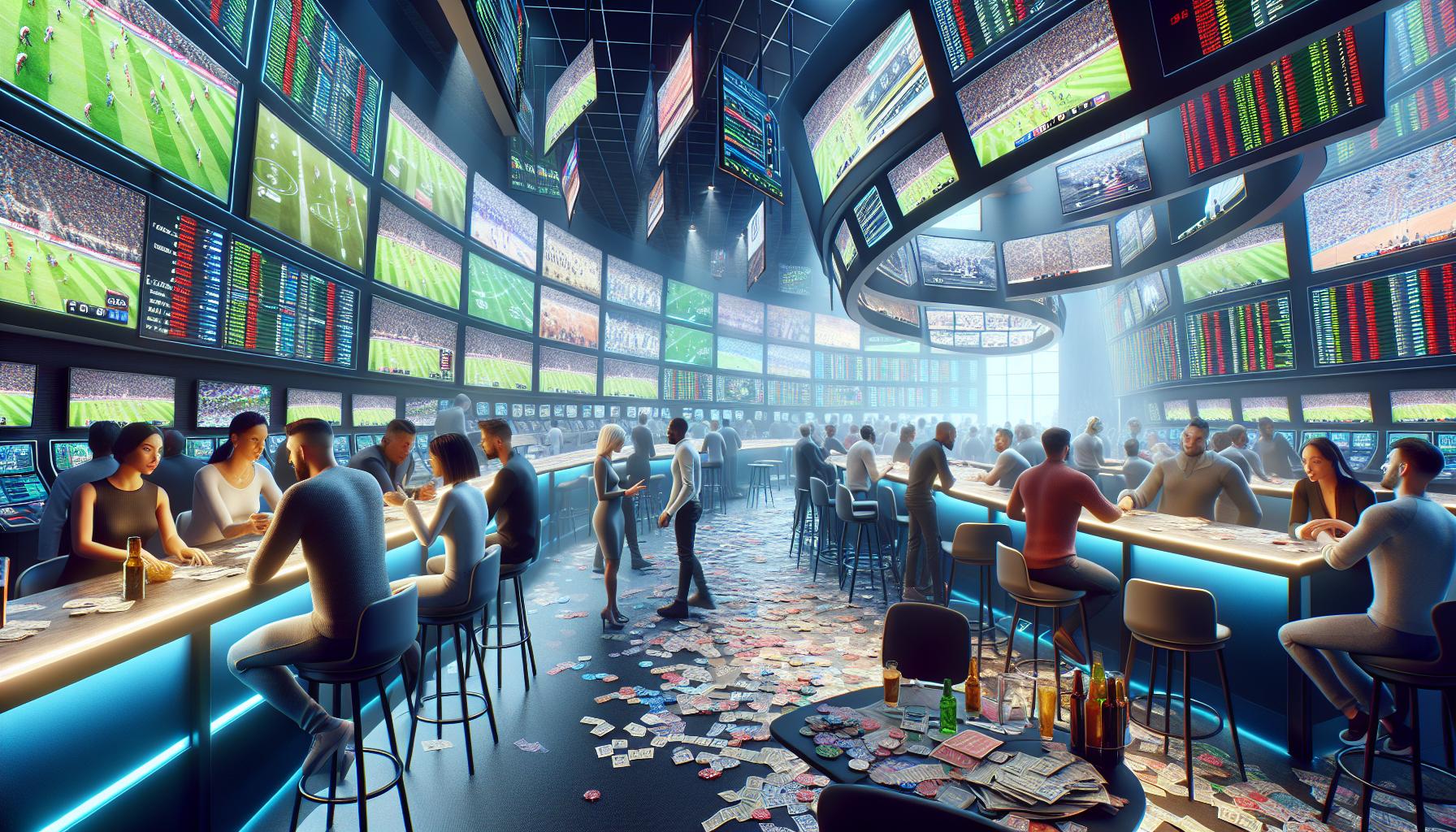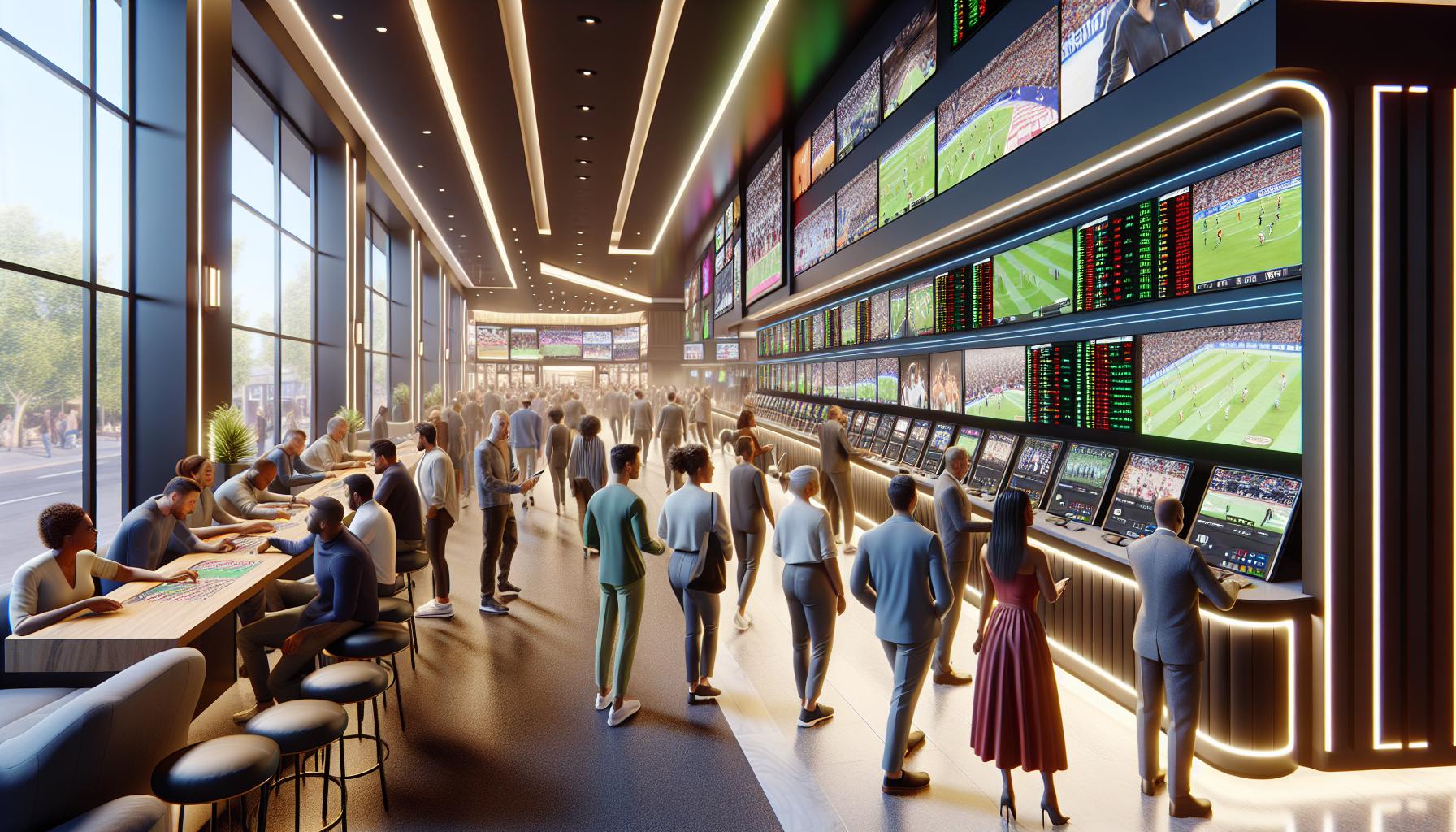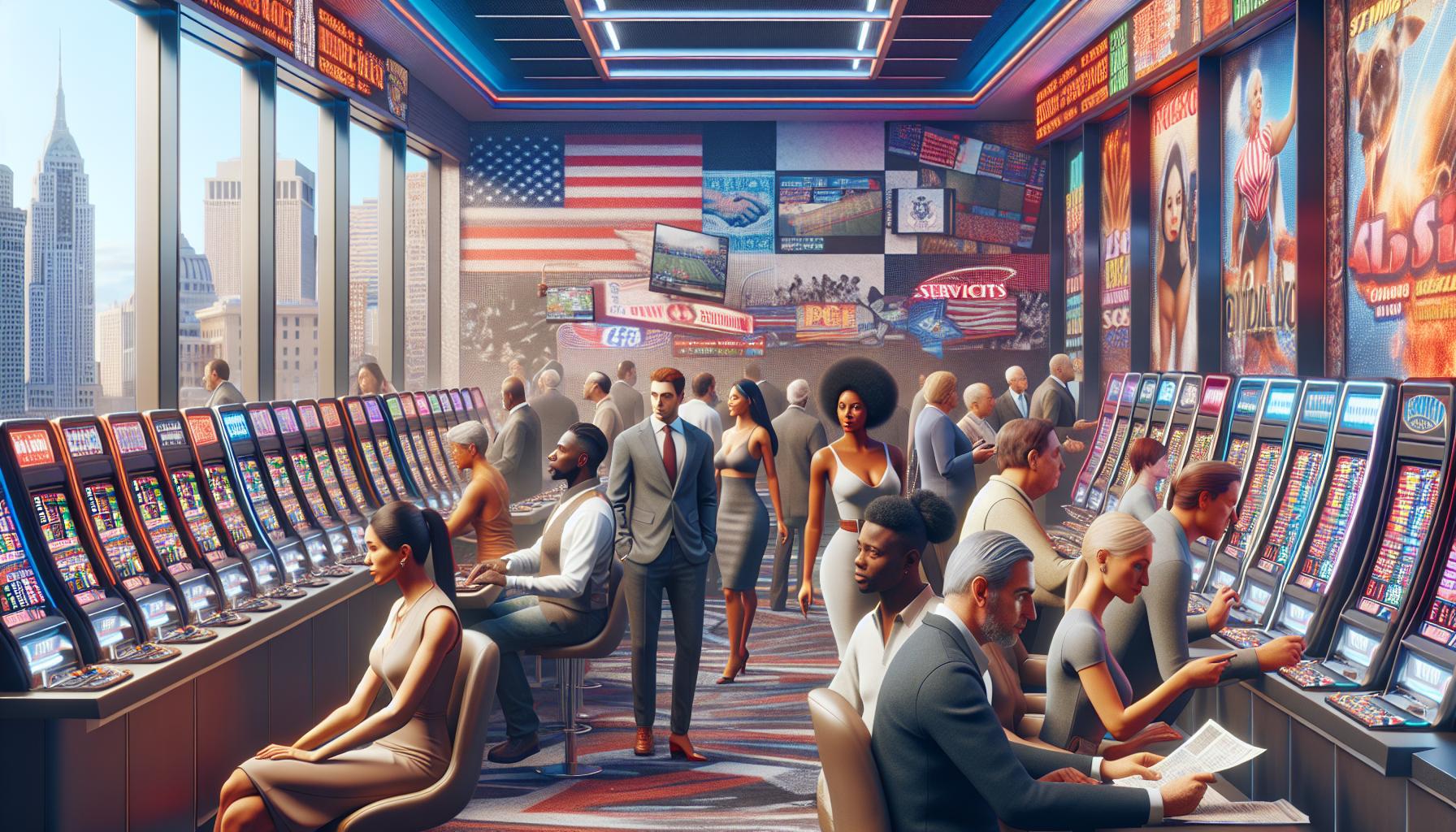In recent years, betting retail has transformed into a vibrant and competitive landscape, attracting enthusiasts eager to place their wagers in person. With the rise of online betting, brick-and-mortar establishments are finding innovative ways to enhance the customer experience and keep pace with digital platforms. This evolution isn’t just about numbers; it’s about creating an engaging atmosphere where bettors can enjoy the thrill of the game.
As regulations evolve and new markets open, betting retail is poised for significant growth. From sleek betting kiosks to immersive sports lounges, these venues are redefining how people interact with their favorite sports and events. Understanding this dynamic sector is essential for anyone interested in the future of gambling and entertainment.
Key Takeaways
- Transformation of Betting Retail: The betting retail landscape has evolved significantly, focusing on creating engaging and personalized experiences to compete with online platforms.
- Key Features: Modern betting retail involves sleek kiosks for quick wagering, immersive lounges for social interactions, and live events that enhance customer loyalty and enjoyment.
- Technological Integration: Advancements such as mobile applications, data analytics, and augmented reality are enhancing the customer experience and keeping physical establishments competitive in a digital age.
- Regulatory Compliance: Understanding and complying with legislation is crucial for operational success, encompassing licensing, responsible gambling measures, and advertising standards.
- Market Competition: The surge in physical betting outlets, fueled by market saturation, requires operators to differentiate themselves through unique offerings and superior customer engagement strategies.
- Adapting to Consumer Behavior: Retail betting establishments must adapt to the evolving preferences of customers who seek personalized experiences, emphasizing the integration of technology and tailored services.
Betting Retail
Betting retail refers to physical locations where individuals place bets on sporting events, races, and other competitive activities. This sector addresses the growing demand for personalized experiences in a competitive gambling landscape. It offers an interactive environment, fostering engagement through various amenities and services.
Betting retail has evolved significantly due to the competition posed by online platforms. Operators focus on enhancing customer experience to attract new bettors and retain existing ones. Engaging interiors, modern technology, and well-trained staff play critical roles in this evolution.
Key features of betting retail include:
- Sleek Kiosks: Provide quick, efficient betting options. Kiosks allow bettors to place wagers with minimal wait time, enhancing convenience.
- Immersive Lounges: Create comfortable environments for bettors. Lounges encourage social interaction, making the betting experience more enjoyable.
- Live Events: Host various gaming-related activities. Live events attract larger crowds and drive customer loyalty by offering unique experiences.
- Advanced Technology: Integrates mobile betting solutions. Operators provide apps and digital platforms that synchronize with retail offerings, enhancing accessibility.
Adapting to regulatory changes and market demands ensures growth in betting retail. Increased options and improved environments help redefine traditional betting, appealing to various demographics. The future of betting retail hinges on innovation and understanding customer preferences, positioning it as a vital component of the gambling industry.
Key Players in Betting Retail

Betting retail contains several key players that shape its landscape, including established companies and emerging competitors responding to market trends. Understanding these entities provides insight into the industry’s direction.
Major Companies and Brands
- William Hill: A leading name in betting retail, William Hill operates numerous locations and offers extensive betting options on sports, races, and gaming events.
- DraftKings: Initially an online platform, DraftKings expanded into physical locations, creating a hybrid model that combines digital convenience with in-person betting experiences.
- FanDuel: Similar to DraftKings, FanDuel transitioned from online gaming to establishing retail sports betting locations, focusing on customer engagement and innovative service offerings.
- Paddy Power Betfair: This merger resulted in a major player in both online and retail betting, leveraging a broad customer base and extensive market presence in various regions.
- BetMGM: A joint venture between MGM Resorts and Entain, BetMGM integrates both retail and digital betting, enhancing customer experiences with its innovative offerings.
- Barstool Sportsbook: Leveraging its established media presence, Barstool focuses on younger demographics and offers engaging betting experiences in physical retail environments.
- PointsBet: Originating from Australia, PointsBet has entered the US market with a unique betting format and interactive in-store features that attract a new generation of bettors.
- BetRivers: A growing player in the retail market, BetRivers emphasizes localized experiences and personalized service in its physical locations, setting itself apart from larger competitors.
- Caesars Sportsbook: This brand, part of Caesars Entertainment, continues to expand its footprint with an emphasis on luxury experiences and integration of retail sportsbooks within its casino properties.
- Rush Street Gaming: Known for its casinos, Rush Street also entered the retail sports betting arena, focusing on enhancing the in-person experience with technology and customer engagement strategies.
Trends in Betting Retail

The betting retail landscape is rapidly evolving, driven by shifts in consumer preferences and advancements in technology. Key trends include the competition between online and offline betting and the integration of technology within physical betting locations.
Online vs. Offline Betting
Online betting continues to gain traction, appealing to bettors with convenience and accessibility. Despite this, offline betting maintains a strong presence, offering unique experiences that online platforms cannot replicate. Physical locations foster social interaction and provide immersive environments for bettors to engage with their favorite activities. Many bettors enjoy the atmosphere of sports events, which online platforms cannot fully emulate. Consequently, successful betting retail establishments focus on creating memorable experiences while leveraging the strengths of online options to enhance customer engagement.
Technology Innovations
Technology innovations play a crucial role in enhancing the betting retail experience. Key advancements include:
- Sleek Kiosks: Kiosks streamline the betting process, allowing customers easy access to place wagers quickly and efficiently.
- Mobile Integration: Many retail locations integrate mobile applications, enabling bettors to manage accounts and place bets seamlessly, even while on-site.
- Data Analytics: Advanced analytics tools help retail operators understand customer preferences, enabling targeted promotions and personalized experiences.
- Augmented Reality (AR): Some establishments experiment with AR to enhance visual experiences during live events, drawing customers into the action and providing interactive elements.
These technological advancements elevate the betting retail sector, keeping it competitive in an increasingly digital landscape while creating unique and engaging experiences for customers.
Regulatory Environment

Understanding the regulatory environment is crucial for navigating the betting retail landscape. Regulatory frameworks dictate compliance measures and influence operational strategies within the industry.
Compliance and Legal Issues
Compliance involves adhering to state and federal laws governing betting retail operations. Key elements include acquiring the necessary licenses, implementing responsible gambling measures, and ensuring security protocols for transactions. Retailers must also execute age verification processes to prevent underage gambling. Legal challenges can arise from non-compliance, resulting in fines, loss of licenses, or closure of operations. Additionally, staying informed about evolving regulations fosters sustainable business practices and establishes trust with customers.
Impact of Regulations on Operations
Regulations significantly impact the daily operations of betting retail establishments. Standards for advertising and promotional practices shape market strategies, while taxation policies influence pricing structures and profitability. Zoning laws can restrict the location of retail outlets, affecting market accessibility. Compliance with data protection laws also requires investing in secure systems to safeguard customer information. Ultimately, robust regulatory adherence enhances operational efficiency and promotes a responsible betting culture among patrons.
Challenges in Betting Retail
The betting retail sector faces multiple challenges that can hinder growth and customer engagement. Market saturation and changes in consumer behavior significantly impact operations and strategy.
Market Saturation
Market saturation presents a notable challenge in betting retail. With numerous physical locations and online platforms available, competition intensifies. Operators must differentiate themselves through unique offerings to attract and retain customers. According to research from the American Gaming Association, the growth of legal sports betting has led to over 30 states allowing this practice, resulting in an influx of betting establishments. Operators may struggle with customer loyalty, as bettors can quickly switch to competitors offering better promotions or experiences. Establishing brand loyalty becomes imperative for long-term success in a saturated market.
Consumer Behavior Changes
Consumer behavior changes influence betting retail dynamics. Today’s bettors demand personalized experiences, combining convenience with immersive interactions. A study by Deloitte indicates that 75% of consumers prefer experiences tailored to their interests and preferences. Retail establishments must adapt to these shifting expectations, integrating technology and customer engagement strategies. For instance, the adoption of mobile apps and loyalty programs allows operators to provide customized offers and facilitate seamless in-store experiences. Failing to meet these evolving preferences may result in lost customers to online platforms that excel in personalization and convenience. Understanding and responding to consumer behavior trends becomes essential for sustaining competitive advantage in betting retail.
Betting Retail
The betting retail landscape is evolving rapidly as operators adapt to changing consumer preferences and technological advancements. By focusing on creating engaging environments and offering personalized experiences, establishments can differentiate themselves in a competitive market. Embracing innovation and understanding the regulatory landscape will be crucial for sustained growth and customer loyalty. As the sector continues to transform, those involved in betting retail must remain agile and responsive to the dynamic demands of bettors. The future holds exciting possibilities for both established players and newcomers willing to innovate and enhance the overall betting experience.